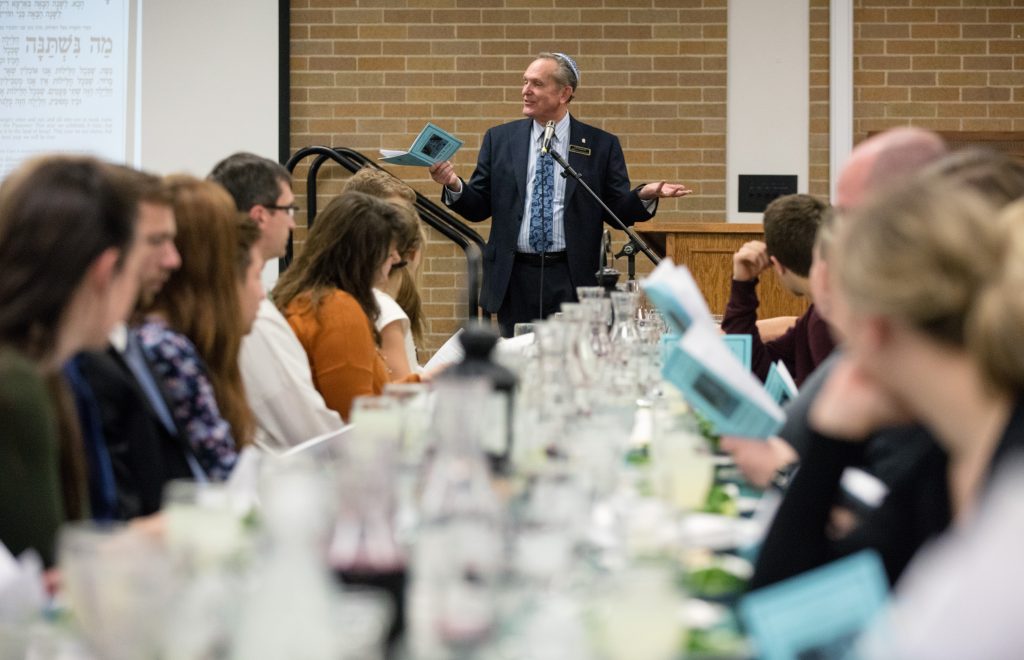
BYU’s Religious Education Department is hosting its annual Passover Seder event over three weekends this spring.
The event is considered a “simulated” Passover service because it does not fall on the calendar night of Passover. The program also draws connections between the symbols in the meal and the religious beliefs of the predominantly Christian audience, according to religion professor Jeff Chadwick.
Chadwick teaches a number of religious classes on the BYU campus and at BYU’s Jerusalem Center for Near Eastern Studies. He is also in charge of leading the Passover Seder events every year.
“We have, of course, a robust program for the BYU Passover, and depending on the year, we will do three or four sessions,” Chadwick said.
Anywhere from 150 to 200 people will attend each Passover, making the event one of the biggest Seder services in the western United States. Events of this size require planning far in advance, according to Faculty Support Supervisor Beverly Yellowhorse, who coordinates the logistics of the event.
“We schedule the rooms a year in advance,” Yellowhorse said.
The food and ceremony are prepared to the standards of a genuine Jewish family Passover, despite slight changes, according to Chadwick. He holds Passover services all over the world with various families.
“We strive to make it authentically Jewish,” Chadwick said.
BYU Dining, which provides the meal, is given strict instructions to cook all the food in the Kosher style. The traditional Jewish Haggadah is also used, which is a book laying out the script and ceremony of the Passover Seder.
The ceremony itself is a celebration of the exodus of the Israelites with Moses from Egypt.
“Passover is one of the longest continually celebrated festivals in human history,” Chadwick said.
Middle East studies/Arabic major Morgan Ferrell celebrates Passover with her family each year.
“It’s a good cultural experience,” Ferrel said. “I’ve learned a lot culturally about the Jews by doing this.”
Chadwick said the Passover is important in the context of the LDS church because of the doctrine that Latter-Day Saints are descendants of the ancient tribes of Israel.
“Latter-Day Saints had ancient ancestors of Israel who came through the Red Sea with Moses on dry ground every bit as much as the ancestors of our Jewish friends did,” Chadwick said. “If Latter-Day Saints understood Passover, they would understand it to be a family heritage that goes back to their ancient Israelite roots.”
The service starts at 6:30 p.m. on March 10, March 24 and April 7 in the Wilkinson Student Center Room 3228. Tickets for March 10 are sold out, but tickets for the other weekends may be purchased in room 271 of the Joseph Smith Building.
More information about the event as well as an FAQ can be found at BYU’s Passover website.




